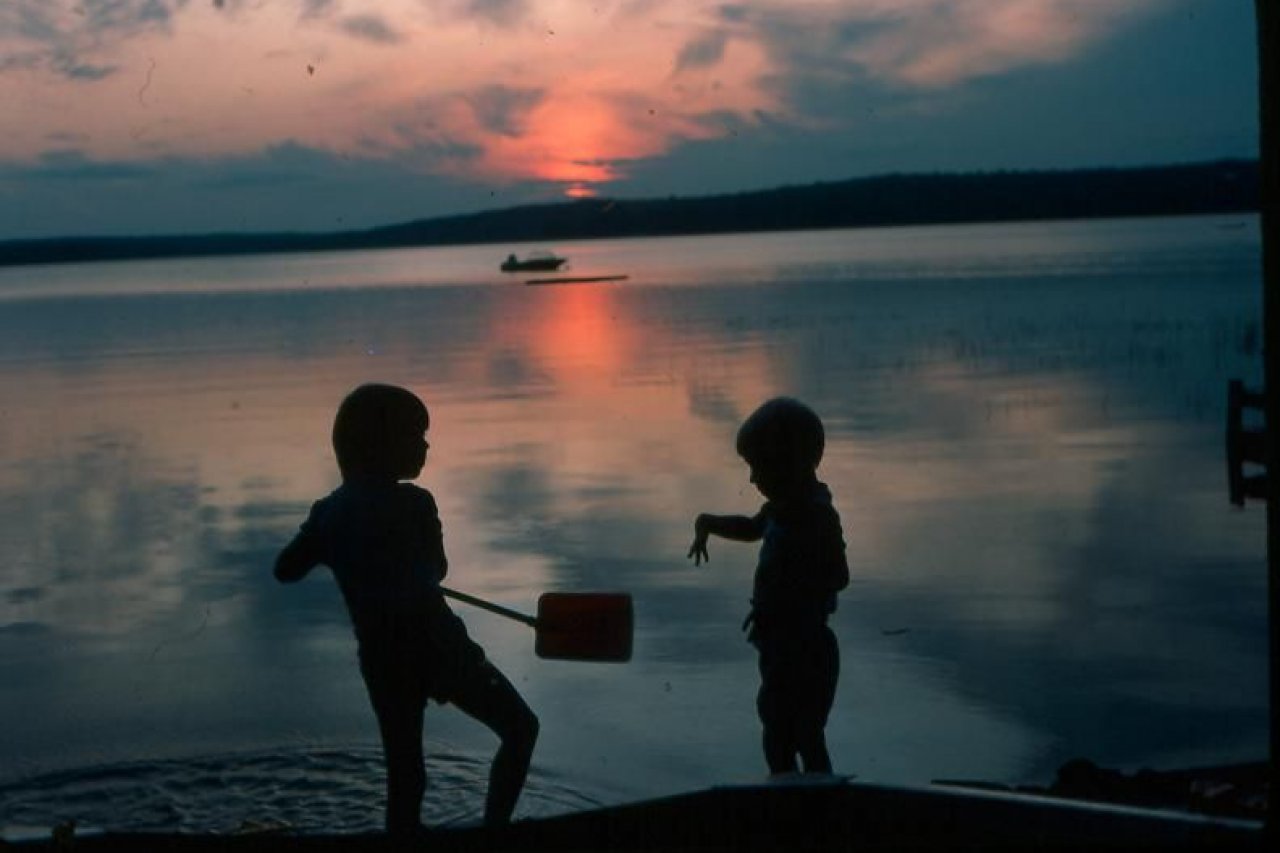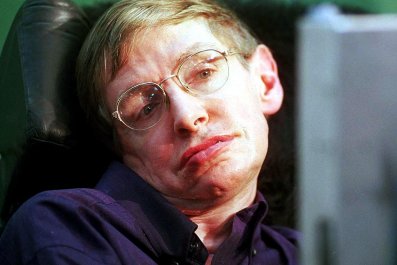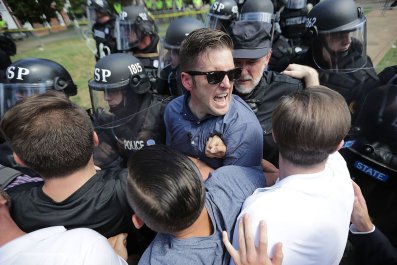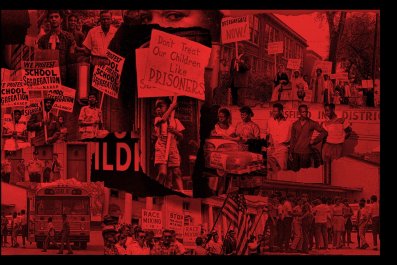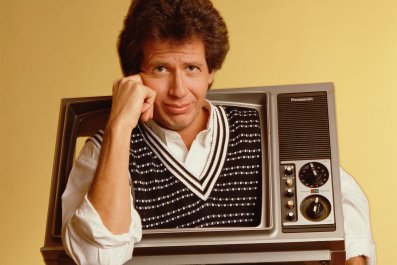If you were born in 1981, brace yourself.
And consider calling a lawyer. You've been slandered: The Pew Research Center says you're a millennial. Welcome to the generation best known for its economic uncertainty, digital fluency, self-absorption and apparent affection for avocado toast. There are no membership dues, unless you count those student loan payments.
If you were born in 1980, though, you're included among Generation X—even though you're too young to have seen Nirvana live or voted for Bill Clinton. Nor are you likely to have entered the workforce before the dot-com bubble burst. The Breakfast Club, the canonical teen movie of the X generation, came out when you were still in preschool.
Generational boundaries are often fuzzy. "Baby boomers really are the only generation that has a concrete, clear demographic start and end," says Pew President Michael Dimock. In the past, some demographers have defined the millennial generation—or Generation Y—as starting with those born in 1980, while others have placed the beginning as late as 1983. Demographers William Strauss and Neil Howe, who coined the term "millennial" in 1987, began with 1982 babies. (One reason: They were destined to become the first Americans to graduate high school in the 2000s. And by 2004, this cohort had become the oldest generation to have Facebook in college.)
In early March, Pew tried to clear up the confusion. "Anyone born between 1981 and 1996 will be considered a millennial," Pew announced, "and anyone born from 1997 onward will be part of a new generation." That new generation is often referred to as Generation Z, though Pew says it's too early to give it a formal name. (Despite its current ubiquity, the millennial label wasn't widely used until well into the present decade—around the time Girls became the show that sparked a million think pieces.)
But some adults who find themselves on the cusp of millennial-hood feel more confused than ever. "It was weird when that Pew thing came out," says Rebecca Farmer, who by Pew's standards recently became one of the first millennials to reach age 37. "I was born in January of '81, so I'm a millennial by three weeks? That's weird. I could have a friend a month older than me and they'd be Gen X? A whole different generation than me? Even though we grew up basically at the same time?"
Newsweek spoke with more than a dozen adults born in 1981. Our highly nonscientific survey found that early-'80s babies often feel culturally removed from 20-somethings and ambivalent about being categorized as millennials. At 36 or 37 years old, these kinda-sortas find themselves caught precariously between two worlds: They're young enough to have grown up with the (pre-Facebook early) internet, yet old enough to be raising kids and planning for their 40s. They're fluent in memes yet also going gray.
Some call them Xennials, which doesn't exactly roll off the tongue, but the point gets across: They're either the oldest millennials or the youngest Gen Xers, depending on whom you ask, but many don't feel a sense of belonging with either category. Born at the dawn of the Reagan era, they graduated college soon after 9/11 and were among the first of their microgeneration to become parents; a handful will become the first millennial grandparents.
"I've been, in my 36 years on this planet, Generation X, Generation Y, a millennial and an Xennial," says Patrick Hipp, a writer who once authored a Medium.com post titled "Fuck You, I'm Not a Millennial." "The names are like watching the progressive degradation of VHS tapes as they enter their third and fourth copies. That's not a joke most millennials can make."
Hipp feels that the cultural and technological experiences of his youth separate him from the millennial masses. For instance, he didn't own a cellphone until adulthood. "Did you ever store CDs in a binder?" he says. "Did you have to make plans with friends using landlines, and if they weren't home, that was it? If I played recordings of a 56K modem or a dot matrix printer, could you identify them?"

Cultural touchstones often expose intragenerational rifts. Donovan Atkinson, a fellow 1981-er, recently mentioned to a co-worker that he was enjoying the Will & Grace reboot. Atkinson was surprised when the co-worker asked him what Will & Grace was. As it turned out, she was only 9 when the show premiered. "I'm approaching 40," Atkinson says, "and most of the millennial criticisms and memes don't seem to apply to me or friends my age."
Maybe the solution is to split the millennial category in two. In a widely shared 2017 essay, New York magazine writer Jesse Singal, born in 1983, argued that there should be a common distinction between "Young Millennials" (those born in 1989 or later) and "Old Millennials" (those born before 1989). Singal argued that "Old Millennials" have lived substantially different lives because they had already come of age before the financial crisis and the all-encompassing rise of smartphones.
That sense of having known a world without Instagram filters perhaps explains why '80s kids regularly chafe at being called the m-word. That millennials are frequently caricatured as entitled, Snapchat-addicted snowflakes on op-ed pages makes the term feel like a pejorative.
But all generations encompass vast swaths of experiences, and "a lot of people really don't like their generational label," says Dimock, the Pew president. "That's particularly the case the closer you are to these cut points. I'm a very early Gen Xer, and [in the '90s] there was a lot about Gen X caricatures of slackers and grunge music in Seattle. I was like, 'Wait, that doesn't feel right.' I was probably just a little too old for all of that."
When I asked how 1981 was chosen as the starting point, Dimock was startled: There had been far more discussion at Pew about where to end the generation. "I think '80, '81, '82—you have to squint really hard to see the difference now that we're so many years later."
But the cutoff isn't entirely random. According to Dimock, there were two significant characteristics of Americans born post-1980 that became clear when Pew issued its first big report on millennials 11 years ago: This was the first generation to come of age with the internet and early social media. ("It was clear that something big was happening with technology and the way people kept in touch," Dimock says.) And the elections of 2004 and 2006 had revealed that millennial voters skewed significantly more liberal than prior generations of young voters.
"We were seeing big differences in views on a ton of issues related to diversity—gay marriage, gender issues more broadly," Dimock says. "Just a bigger open-tent mindset that was distinctive, even to people in their late 20s at the time."
Politically and economically, perhaps the '81-ers are akin to millennials. Several 36-year-olds tell Newsweek that they relate to younger millennials' concerns contracting employment opportunities and overall disillusionment with capitalism. And the generation as a whole has largely rejected Donald Trump and Republicans in general.
Culturally, it's more complicated. The subtle disconnects between young and old millennials often become more obvious in relationship settings. "While it would be reassuring to think that my 22-year-old girlfriend is of the same generation as me," Hipp says, "deep down, I know she's not."



